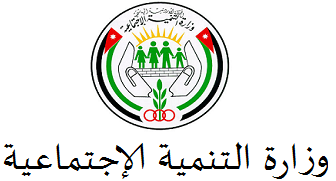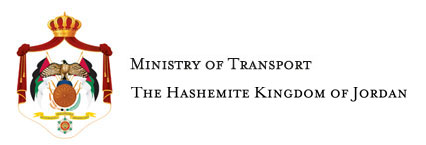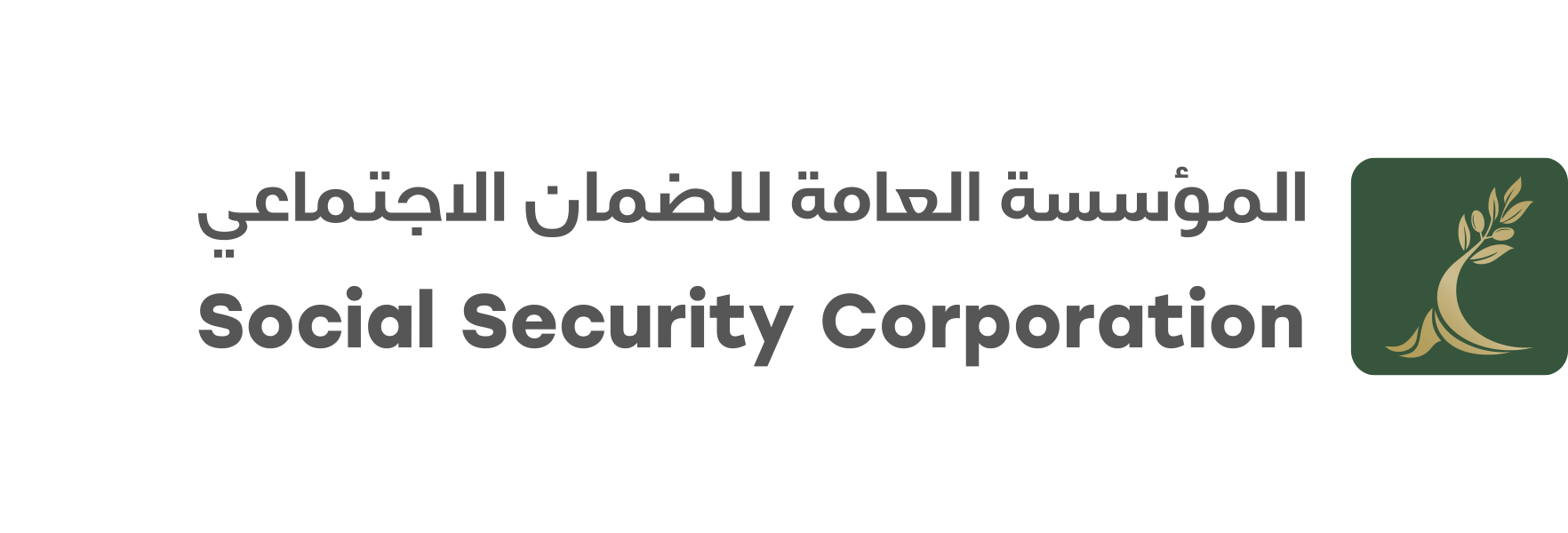SADAQA
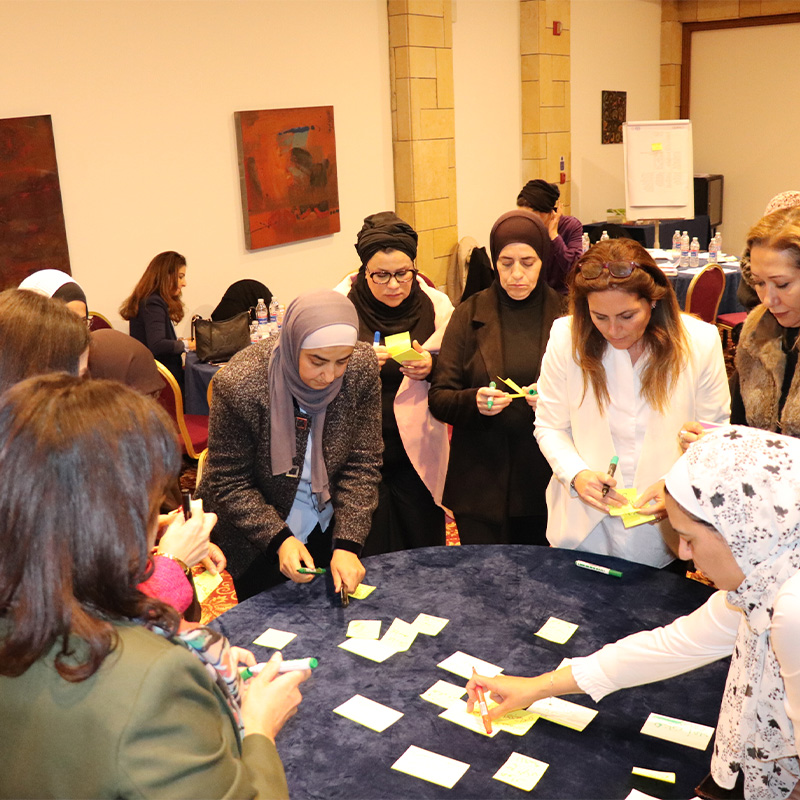
SADAQA, a leading civil society organization dedicated to addressing gender inequality in the labour market was launched in 2011 as a community organizing campaign and was registered as a non-for profit organization in 2012 with the aim of increasing women’s economic participation in Jordan through creating a friendly environment for working women and mothers.
Our goal is to support working families and encourage women and mothers to enter the job market and remain in it to reach decision making managerial posts through working on eliminating the main barriers to entry to the workforce; lack of daycares, public transportation, pay inequity, inadequate social protection.
SADAQA has also played a leading role in developing a National Framework for ensuring a holistic response to childcare needs in the labour market by ensuring daycares become a public good.
Through this approach, and by creating successful partnerships at both the grass-roots and government levels, SADAQA has managed to become a leading civil society organization dedicated to addressing gender inequality in the labour market.
SADAQA was also successful in its advocacy effort to work with Social Security Corporation (SSC) and amend Article 42 of the maternity fund to provide support for mothers after the maternity leave to enroll their children in daycares through a monthly payment to cover the daycare fees. The amendments also included provisions to directly support existing daycares and daycares under establishment to ensure availability and accessibility of daycares in Jordan.
SADAQA has also been advocating for a more accessible and safe transportation system. It’s main goals under in meeting the needs of women users of public transport include activating the national framework for gender sensitive transportation that SADAQA developed together with Ministry of Transport and UN Women in Jordan to ensure transportation policies achieve justice, and infrastructure needs are met to foster safety, security, quality and reliability of public transport.
SADAQA’s Mission
Achieve social justice and gender equality in the labor force in Jordan.
SADAQA’s Vision
Advance women’s labor rights in Jordan by advocating for equality in law, enabling equal access to the labour force, and elevating skill levels.
SADAQA Strategic Objectives
- Activating the provisions of the national framework for the institutional daycares for all aspects. Also, gaining advocacy and connecting with all concerned parties, in order to include the different models of daycares, through activating Article 72.
- Continue calling for social protection for working women and the daycare sector through widening and institutionalizing programs associated with the maternity fund and Article 42 of the SSC Law.
- Continue working on creating an organized, safe, and accessible public transportation system for all, through The National Framework for Gender Sensitive Transport, and supporting initiatives that provide solutions for public transportation that facilitate women’s access to work, especially women in the agricultural sector.
- Working, networking with partners, society institutions, and community campaigns alliances ( Protect My Daycare Campaign, Stand Up with the Teachers Campaign, Women’s Work Council, The Alliance for Alleviating Violence and Harassment in the World of Work, and Ma’an Nasel Campaign).
- Supporting university female students and teachers in enhancing their knowledge of labor law, women’s rights in the labor market, and how to claim their rights.
SADAQA Achievements
Multiple forms of discrimination stand between women’s participation in public space, and particularly in the labour force. Studies have shown that the lack of reliable public transportation, lack of childcare services and the unequal distribution of unpaid care work, and low or unequal pay, are the main reasons for women’s low economic participation which has stood at 14% for the past decade. Most of the time, these structural barriers come together to push women away from public space and from economic participation.
SADAQA is taking seriously the issues that women face in entering the Jordanian economy labor market and other issues because these issues were personal for the SADAQA team. However, SADAQA has achieved and succeeded in solving a lot of issues.
SADAQA started its work as a campaign that supported female economic participation and toward a friendlier work environment for women in Jordan.
SADAQA officially became a non-profit community organization that supports families and women through daycare, provision to increase female economic participation.
SADAQA created a public opinion case about the importance of daycare as it’s linked to economic female rights; through activating “Article 72” by the Ministry of Labour and launching guidelines for the institutional daycare license, emission a popularization from the Prime Ministry for establishing daycares in all governmental, official institutions, departments, and support corporates to establish daycares, as well as SADAQA has launched a manual about establishing institutional daycares.
SADAQA launched a campaign “A Daycare in My Company” which resulted in establishing 100 daycares and supporting technically more than 300 corporates to increase interaction with them.
SADAQA and the Ministry of Labor, and the International Labor Organization developed a national framework for the institutional daycares as a spark in order to make the daycares accessible for everyone. SADAQA has Highlighted the issue of daycares in the international UN reports, and formed the “72 Alliance” in order to press on the Parliaments to re-edit the “Article 72”, Also qualitative research titled “The Value of Daycares in the Workplace: Telecommunication Sector as a Case Study”, and launching a training program for the caregivers, daycare principles and succeed in employing tens of them in the sector. Also, launching a national manual for qualifying the caregivers.
SADAQA established “Al-Haq” alliance which included 11 national institutions that were concerned with women’s rights, labour rights, and women’s economic participation.
SADAQA demanded that the public transportation file for women be considered a national priority because 47% of women are reluctant to enter the labour market due to the poorness of public transportation. Also, SADAQA has succeeded in modifying the labor law with regard to women’s economic rights. Establishment of the coalition against violence and harassment in the workplace to implement convention No. 190 of the International Labor Organization on the elimination of violence and harassment in the workplace. Establishing a network called “The First Five Years” for supporting daycares, and caregivers, as well as for training and employing caregivers. Introducing paternity leave for the first time in legislation.
SADAQA responded to the pandemic by supporting 50 daycares in order to help them continue and sustain in providing childcare services for working families. Highlighting the conditions and rights of working females during the pandemic, launching the workers’ voice platform, SADAQA podcast, and policy papers. As well as, succeeded the claims of reopening the daycares during the pandemic for working families. Modified the social protection system that related to maternity insurance of the Social Security Law and launched the first part of the care program to support the child through daycares and home child care programs. Lobbying about the transportation conditions for the agricultural female workers and the issuance of the system for agricultural workers. In addition, launching research titled “Agriculture Working Women: Working Conditions, Experience, and Challenges in Using the Transportation to and from Farms”.
on the tenth anniversary of the establishment of SADAQA, Holding the “Women’s Power” conference to highlight the economic rights of women and enhance the voice of working females, and launch the “Women’s Work Council”. Launching the “National Framework for Public Transportation from a Gender Perspective” in cooperation with the Ministry of Transport. Also, launching the “Justice for Female Workers” campaign with “TAQATO’AT” in parallel with Labour Day. Continuing to work with the Social Security Corporation and launch the second part of the “Care Program” by contributing to operating costs for daycares.
Activating the NFD, linking it to the Economic Modernisation Vision, to spread all types of daycares, raising women’s economic participation, and developing its plan of action with national authorities and partners.
Start establishing a SADAQA Training Academy with the aim of ensuring the continued advancement of the care sector by targeting daycares managers and caregivers from various governorates of Jordan.
The SADAQA Team
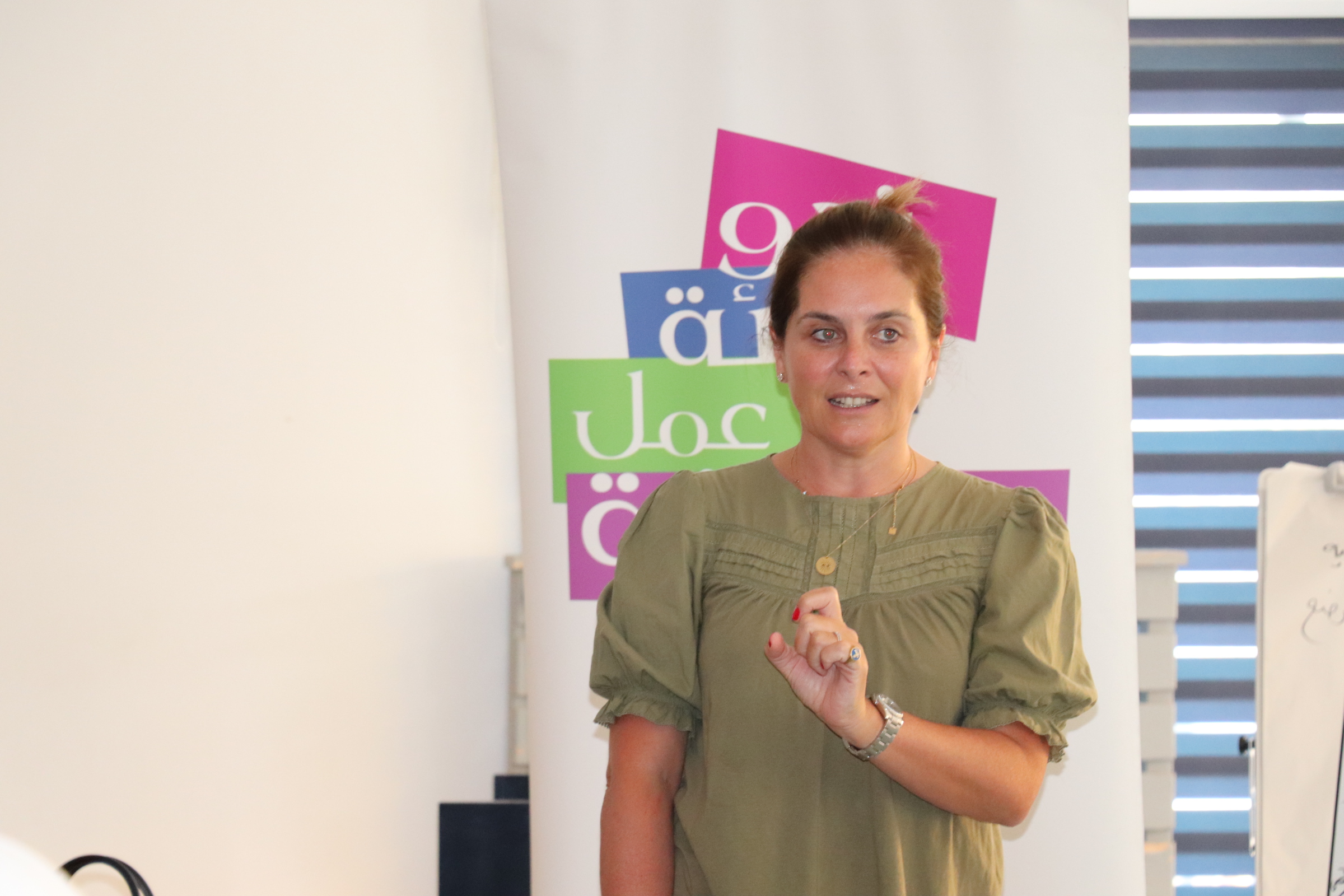
Randa Naffa
Founder and Executive Team Member
Community organizer and gender specialist. Since 2011 through her work at SADAQA, Randa contributed to amending and activating several laws related to women’s work and the provision of daycares in Jordan, as well as impacting the way civil society institutions and advocacy campaigns organized around women and human rights. Randa holds an MA in gender studies from the University of Essex in the U.K and a BA in Political Studies from the American University in Beirut. Randa became a teaching fellow at the Harvard Kennedy School of Government teaching leadership, change and community organizing. She helped coach and train at least 17 campaigns and hundreds of activists from around the world. At SADAQA, Randa managed to publish a series of studies on the care economy and gender and transport. Prior to her work at SADAQA, Randa worked for a range of local and International organizations as well as the UN on gender and development programs and managed the first gender mainstreaming project at a government institution in Jordan.
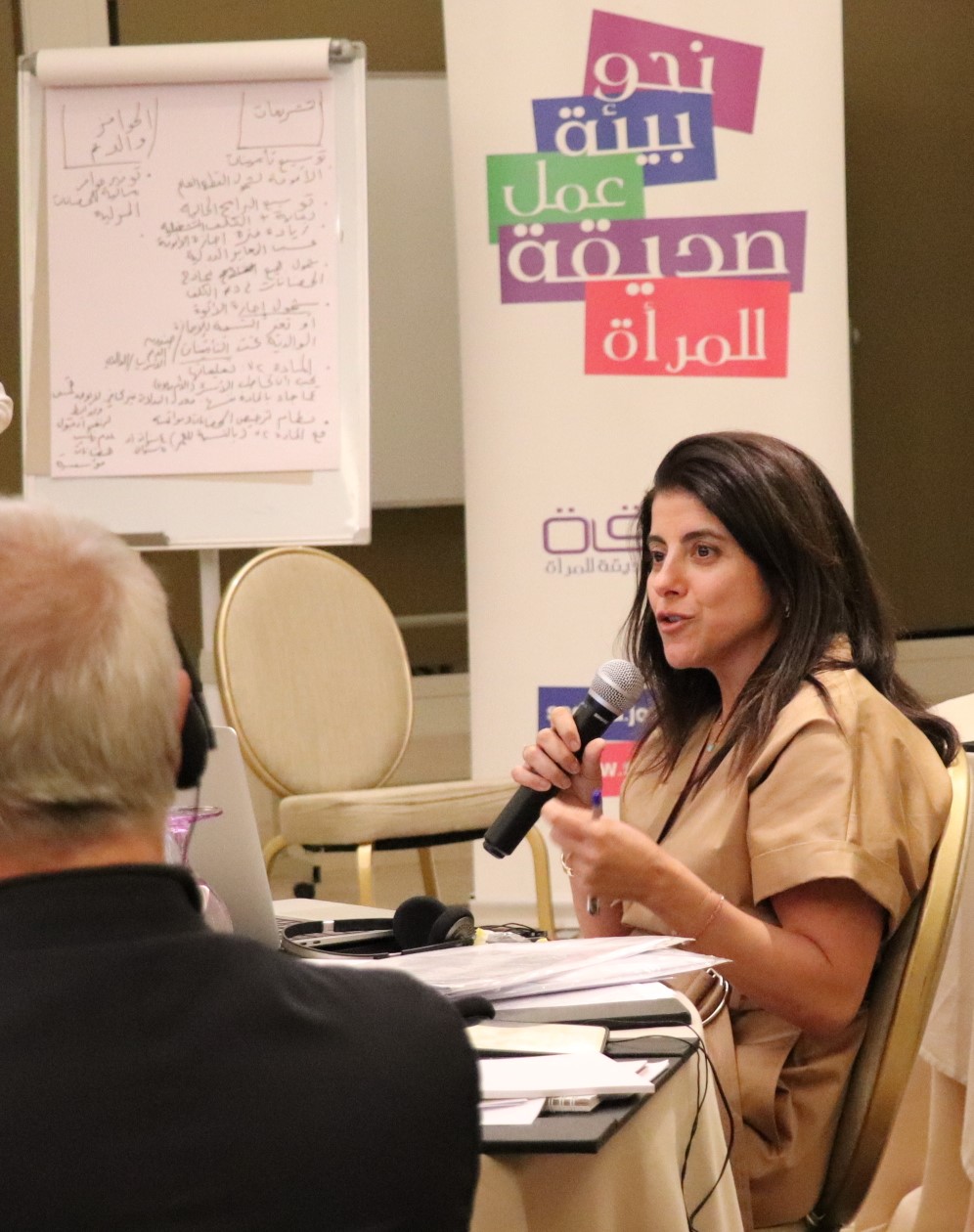
Lara Ayoub
Founder and Executive Team Member
A co-founder of SADAQA, Lara Ayoub established the organization in 2011 with other working mothers in a bid to create family-friendly policies that empower women to enter, remain, and advance in the workforce. A staunch advocate of women’s rights, Ayoub works hard through SADAQA to bridge gender gaps in employment and push for compliance with Labour Law provisions on childcare services. She asserts that these factors are key to increasing the country’s female labour force participation, which still remains low at around 14%. SADAQA maintains that removing barriers to women’s empowerment and gender equality is pivotal to sustainable economic growth and development, Ayoub says.
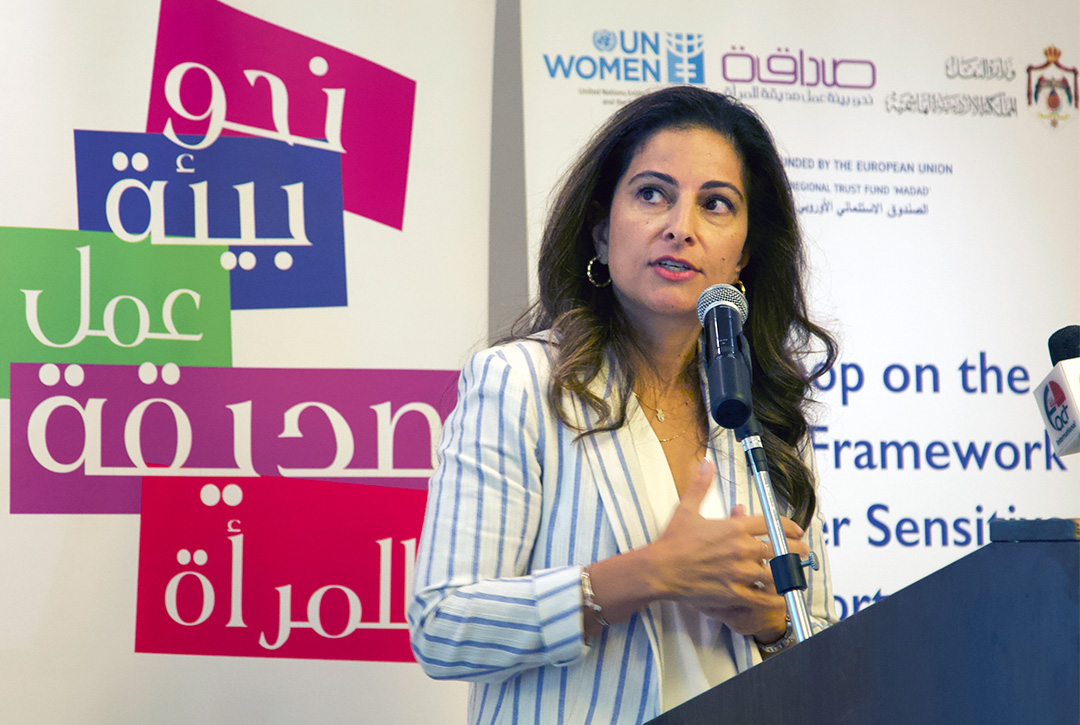
Sahar Aloul
Executive Team Member
Women’s rights activist gender and transport expert. In her capacity at SADAQA, Sahar leads advocacy efforts aiming to lower structural barriers for women to enter the workforce in Jordan including the lack of workplace daycares and public transport. These efforts successfully culminated in amending the Labour Law in 2019 to include gender sensitive provisions that ensured pay equity, the presence of daycares at workplaces for both parents, and the introduction of paternity leave. Sahar was also part of the SADAQA team who were involved in successfully advocating for widening the social protection umbrella for working mothers and underpaid care workers in daycares. She was responsible for launching several studies and nationwide campaigns, and coordinating community and civil society efforts pertaining to the rights of public transport users and women’s rights to a violence and harassment-free work environment. Prior to her work at SADAQA, Sahar was a career journalist for 17 years at a number of local and international media outlets.
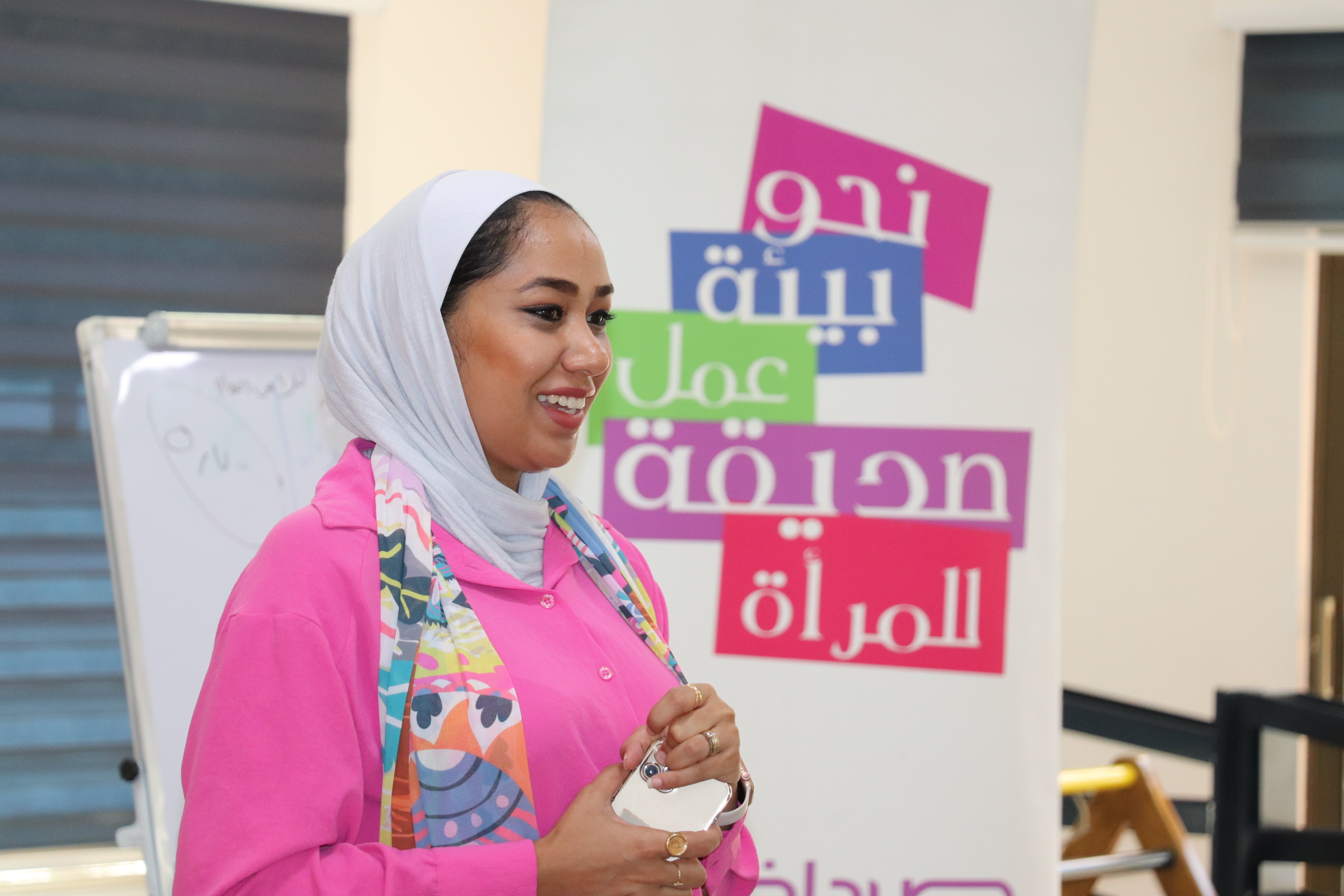
Rana Ali
Senior Project Coordinator
In her role at SADAQA, Rana monitors work plans and budgets of implementing partners and coordinates project activities with SADAQA’s stakeholders, such as the Ministries of Labour, Social Development, Social Security Corporation among others. Moreover, Rana oversees the SADAQA Academy running caregivers and daycare managers training and manages SADAQA’s workshops and events related to the childcare sector. She also supports SADAQA in research, with emphasis on quantitative data collection and reporting.
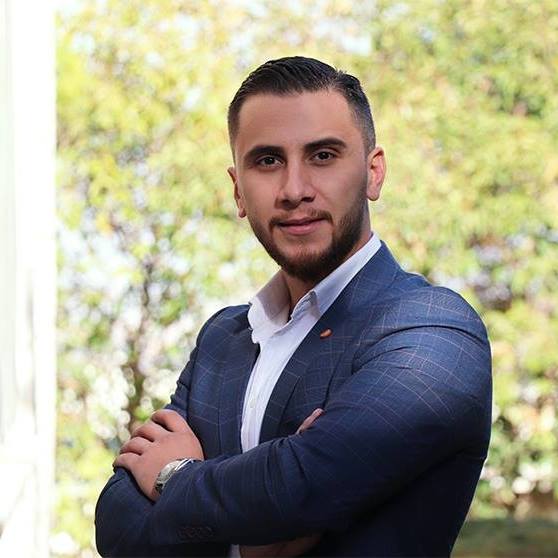
Ahmad Mohammad
Content and Communications Coordinator
Content Creator and Digital Marketing Specialist. Ahmad is an innovative research scholar, specialized in branding, social media marketing, and E-Business development. In his role at SADAQA, Ahmad manages SADAQA’s brand image, oversees media presence, develops and produces media content, and manages all social media platforms. Ahmad is a Social Media Marketing PhD candidate and Collaborative communicator, continually focusing on writing research in the digital marketing field. His forte lies in obtaining a comprehensive understanding of data content to establish detailed business requirements in various industries and utilizing data visualization tools in order to optimize efficient social presence.


